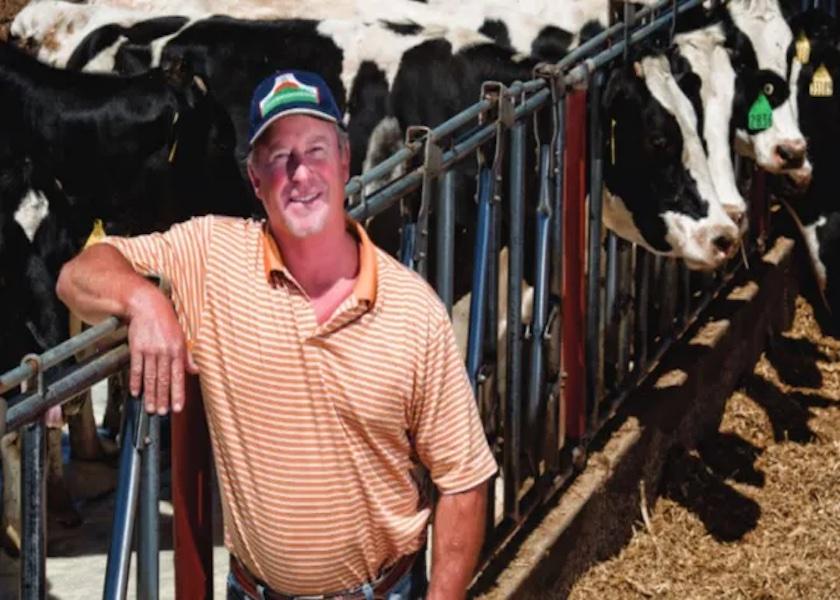Living a PFAS Nightmare

Imagine receiving a phone call from the government telling you to euthanize your entire herd. That’s the nightmare Art Schapp, owner of Highland Dairy in Clovis, New Mexico, wished had never come true. And it’s one he continues to live each day, with his farm now officially being deemed a hazardous waste site.
The Battle with PFAS
It all started back in August 2018 when Schaap received word that seven of the 13 wells located on his dairy had been contaminated by toxins called per- and polyfluoroalkyl substances (PFAS.) These toxic chemicals entered the groundwater after aqueous film-forming foam, a substance used to smother flames in fire training exercises, were used at the nearby Cannon Air Force Base.
A July 2017 inspection by Air Force scientists found contamination near the Schaap dairy – an inspection that came eight years after the Air Force identified the need for such an inspection. The Air Force reported its findings to the New Mexico Environment Department, but not to the people living nearby. When the Air Force finally tested Schaap’s water on Aug. 28, 2018, it was found to be so polluted the military immediately began delivering bottled water to the family’s home.
Schaap’s attention quickly turned to the cows.
“Milk is 97% water. We knew that since the PFAS was contaminating our water, it would likely be contaminating our cows and our milk, too” Schapp told the audience at the 20th Anniversary of the Milk Business Conference.
Testing showed the cows, along with the milk they produced, contained PFAS at levels the U.S. Food and Drug Administration deemed unsafe for human consumption, and Schaap was forced to dump approximately 15,000 gal. of milk each day.
Unfortunately, culling the herd was not an option. With the meat from the animals being tainted, no processor was willing to help Schapp dispose of his herd.
“We didn’t know what to do,” Schapp said.
After working countless hours with lawyers and filling out hundreds of forms, Schapp learned that he could apply for the Dairy Indemnity Program – a program created to provide payments to dairy producers when a public regulatory agency directs them to remove their raw milk from the commercial market because it has been contaminated by pesticides and other residues. However, these payments had a time limit of 18 months.
“When we applied for the Indemnity Program, they only had like a half million dollars in there. And we were losing a half million dollars of gross income a month,” Schapp said. “We went to [the government] and asked them to extend the program, and they said it would take six months to get everything figured out. That wasn’t the case.”
This nightmare continued for nearly four years until Schapp finally received word giving him the go-ahead to euthanize his herd. Highland Dairy worked with state agencies to outline a plan for the disposal of thousands of dead cows as part of the USDA funding process.
“Until that point, we just had to watch some of the cows die,” Schapp said. “We just wanted this mess to finally come to an end, and 42 months later in April 2022, it did.”
With assistance and direction from the State Veterinarian and the New Mexico Livestock Board, Highland Dairy humanely euthanized 3,665 cows – Schaap’s entire herd.
“It was an emotional rollercoaster,” Schapp said. “Nobody should ever have to go through that, but it felt like we were finally nearing the end.”
No Giving Up
Today, the parlor at Highland Dairy sits empty. And unfortunately, the steady hum of those pulsators will never be heard again.
According to Schapp, in 2022 the EPA’s limit for PFAS in agricultural water was 70 parts per trillion - Schapp’s operation tested at 37,000 parts per trillion. In March 2023, the EPA will drop that standard to 0.02 parts per trillion, making Highland Dairy 1,000,008 times over the limit.
“Because of this new standard, our farm will now be considered a hazardous waste site, and I have no idea what will eventually become of our property,” Schapp said. “Farmers need to be aware of these regulations and what’s happening on and around their farms so they aren’t blindsided by this disaster like I was.”
While Schapp’s fond memories of his dairy are now tainted with destruction and heartache, he never regretted his decision to stand up and fight for his farm.
“Giving up was never an option for us,” Schapp said. “This wasn’t the outcome we were hoping for, but we never, ever gave up. This whole process made me painfully aware of how alone farmers really are when something like this happens. And I hope it doesn’t happen to anyone else. But if it does – know that you have to be strong and you have to fight hard.”
For more on Schapp's story, read:







